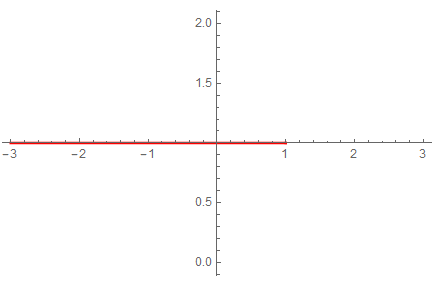I have proven that $expr=(1 - i)(\dfrac{1+z}{1-z})^{1/4}\dfrac{\sqrt{ 1-z^2+i z\sqrt{1 - z^2}}}{1+z-i\sqrt{1 - z^2}}=1$ when it is assumed that $z\in R$ and $|z|<1$ and when I also plot the real and imaginary parts of it in that domain, it is indeed equal to $1$, but when I try to use
FullSimplify[expr, Assumptions -> {z \[Element] Reals && Abs[z] < 1}]
in order to try to get $1$, it gives back the same form of the expression.
So, what is the problem and how can I fix this?
EDIT: In Mathematica, I wrote this as
expr = (1 - I) ((1 + z)/(1 - z))^(1/4) Sqrt[
1 - z^2 + I*z*Sqrt[1 - z^2]]/(1 + z - I*Sqrt[1 - z^2]);
And after getting the result, I used FullSimplify[%, Assumptions -> {z \[Element] Reals && Abs[z] < 1}]



Reduce[1 != expr && -1<z<1, z]returnsFalse.FindInstance[expr != 1 && -1<z<1, z]returns{}.Normal[Series[expr, {z,0,20}]]returns1. Will any of those do? $\endgroup$